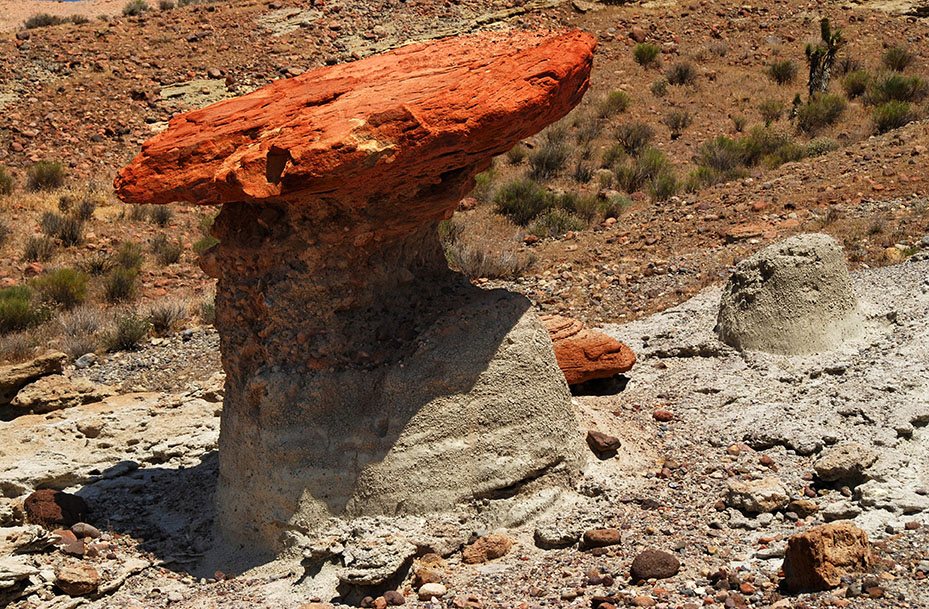
physical weathering
Definition
Physical weathering is the breakdown of rocks and minerals by physical forces, such as water, ice, wind, and gravity. Physical weathering does not change the chemical composition of the rocks or minerals, but it does change their size and shape.
Here are some examples of physical weathering:
- Water: Water can cause rocks to break down through a process called hydraulic action. When water freezes, it expands. This expansion can cause cracks to form in rocks. Over time, these cracks can grow larger and larger, eventually breaking the rock apart.
- Ice: Ice can also cause rocks to break down through a process called frost wedging. When water freezes in cracks in rocks, it expands. This expansion can cause the cracks to widen and eventually break the rock apart.
- Wind: Wind can cause rocks to break down through a process called abrasion. Windblown sand and dust can act like sandpaper, wearing away at rocks. Over time, this can cause rocks to become smooth and rounded.
- Gravity: Gravity can cause rocks to break down through a process called sediment transport. When rocks are exposed to the elements, they can become weakened and start to crumble. This crumbling rock can then be carried away by wind or water, eventually depositing it elsewhere.
How can the word be used?
Frost weathering is a type of physical weathering that occurs when water freezes in cracks in rocks and expands, causing the rocks to break apart.

Different forms of the word
Noun:
- physical weathering (the breakdown of rocks and minerals by physical processes, such as temperature changes, water, ice, and wind).
Adjective:
- physical weathering (of or relating to physical weathering).
Etymology
The word "physical weathering" is a compound word, made up of the words "physical" and "weathering". The word "physical" comes from the Greek word "physikos", which means "of nature". The word "weathering" comes from the Old English word "weðrian", which means "to change".
So, physical weathering literally means "the change of rocks and minerals by physical processes". This is a reference to the fact that physical weathering does not involve any chemical changes to the rocks and minerals.
The word "physical weathering" was first used in English in the 19th century. It was used to refer to the breakdown of rocks and minerals by physical processes, such as temperature changes, water, ice, and wind.
Question
What is physical weathering?